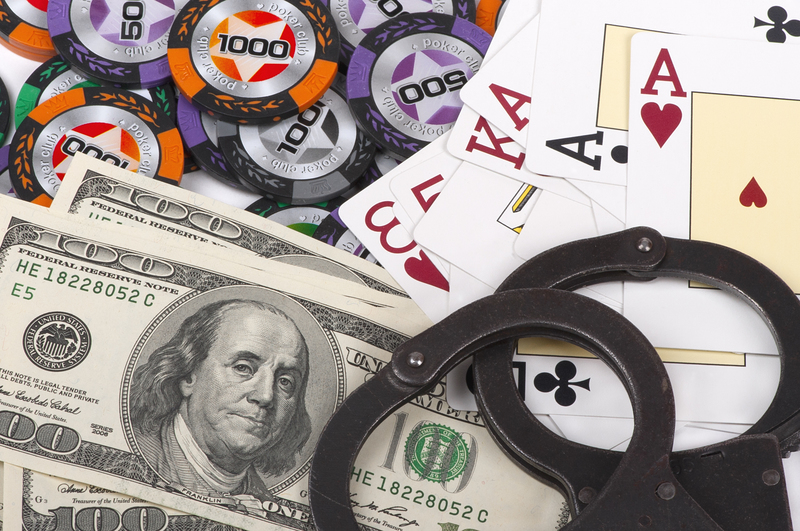






Michigan City Puts Poker Home Games In Legal Cross-Hairs Under New OrdinanceLansing City Council Approves Gambling 'Prohibition' |
|
|

Your run-of-the-mill, rake-free poker home game with friends could be declared a public nuisance under a new set of rules approved in one Michigan city.
The Lansing City Council early last week voted 7-1 to pass a new ordinance that gives the city more power to crack down on gambling. According to the ordinance, forms of gambling not given state approval could be subjected to criminal penalties in the state’s capital city.
While the ordinance doesn’t mention home poker games, it’s broad enough that it would actually allow local law enforcement to put a stop to private residential poker games where there is no rake or financial benefit to the host of the game (other than obviously winning money in the poker game itself). That’s according to the one council member who voted against the ordinance.
While the new ordinance does give Lansing police new tools to thwart illegal video gambling operations, it’s far too expansive, said 4th Ward Council Member Brian Jackson.
“The intent is one thing, but that doesn’t stop a future police chief from reading the plain language and concluding that it’s illegal to have a card game at grandma’s house,” Jackson, a lawyer, told the Lansing State Journal. The ordinance has already went into effect.
 Jackson didn’t immediately return a request on Thursday from Card Player Magazine for further comment.
Jackson didn’t immediately return a request on Thursday from Card Player Magazine for further comment.
According to the newspaper, which described the ordinance as a gambling “prohibition,” gambling not sanctioned by the state now carries with it the risk of a misdemeanor charge, punishable by up to three months in jail and a fine no more than $500.
Council members voting in favor of the ordinance reportedly underscored the fact that enforcement will happen on a complaint-by-complaint basis. But, like Jackson alluded to, the ordinance’s language allows for a broad interpretation.
According to Lansing criminal defense attorney Karen Phillips with the Nichols Law Firm, a poker home game could be investigated if someone contacts law enforcement.
“Someone would have to make a complaint in order for it to be investigated and potentially charged,” Phillips told Card Player Magazine. “It may be a slight possibility, but it’s still a possibility. For most people who are having a poker game at their house, there are only a handful of people there, so it would almost have to be someone within the group to make the complaint. I don’t foresee that happening but with the wording [of the ordinance] it is a possibility.”
The host and his or her friends could all be subjected to criminal penalties under the new rules. The ordinance states that no person can “knowingly attend, frequent, operate or be an occupant of a place of illegal gambling.”
A crackdown on a home poker game could result in police confiscating property from the poker game, according to Phillips. You’d have to go through the courts to recover the property. Phillips said it is “possible” for Lansing law enforcement to seize money, poker chips, poker tables and even decks of cards while enforcing the ordinance on a home poker game. Phillips called seizing personal property from a home poker game a “gray area” because a deck of cards, for example, has everyday “household use” that wouldn’t necessarily be for a game of poker.
Phillips said she hopes there will be some additional wording to the gambling ordinance to protect private poker games. “There could be some creative language to definitely clarify and weed out the people who could be caught up in this,” she said. “We had a series of illegal gambling establishments in Lansing, and that is along the lines of the underlying intent of the ordinance.”
Forms of gambling allowed by Michigan that happen in Lansing include the lottery and charity gaming events. The city doesn’t have a legal casino like exist elsewhere in the state. The ordinance states that the prohibition doesn’t apply to arcade games involving non-cash prizes.
